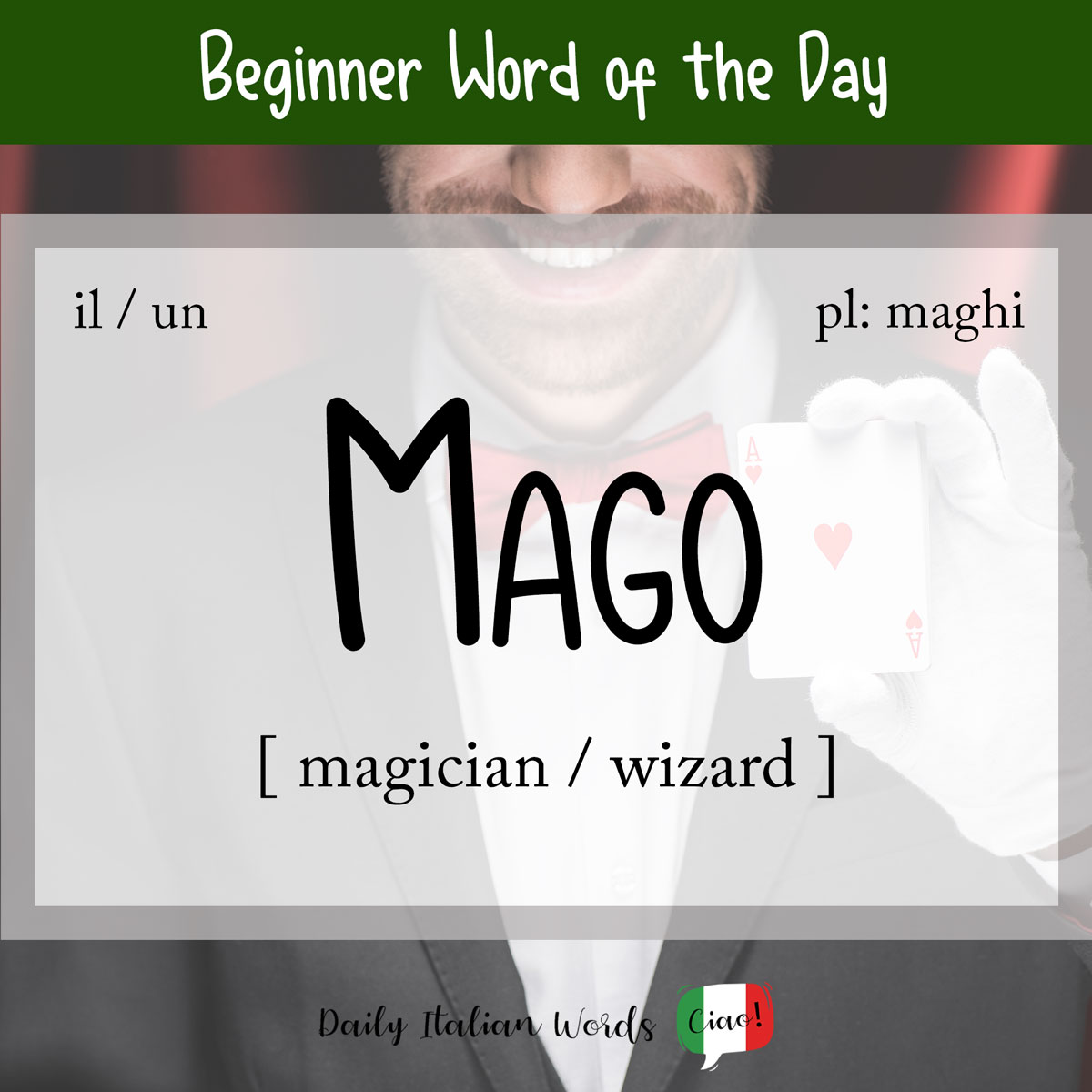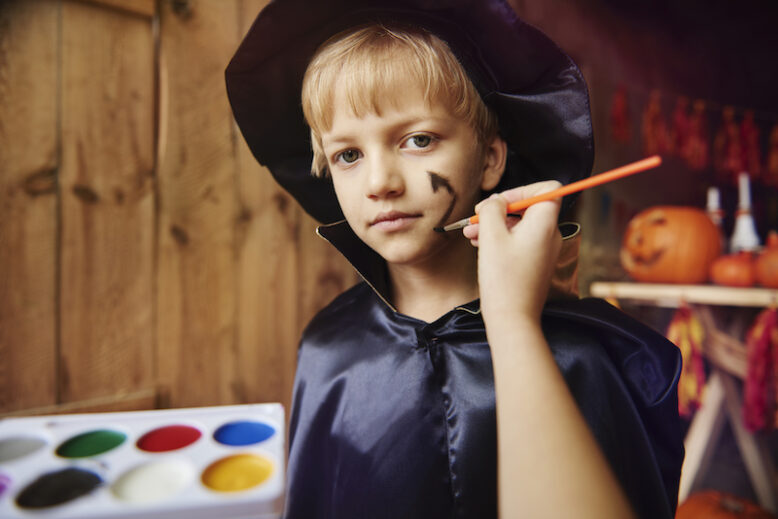The Italian word for a person with magical powers, or a person that performs magic tricks, is mago.

Mago is a masculine noun, and for this reason, it is only used to denote male figures with magical powers. The feminine equivalent is maga and their respective plurals are maghi (masculine, plural) and maghe (feminine, plural).
un mago
il mago
una maga
la maga
dei maghi
i maghi
delle maghe
le maghe
Note: you may also see magi as a possible masculine plural for mago. However, this form is mainly related to i tre re Magi (the Three Wise Men, or Biblical Magi) in the Bible.
Some possible translations include:
- Mago = magician, wizard, sorcerer, warlock, enchanter
- Maga = magician, sorceress, enchantress, witch
Il mago Merlino ha svelato il nome del futuro re.
Merlin the Wizard has revealed the name of the future king.

As in English, you can use mago and maga to describe an artist who performs magic tricks for entertainment.
Il mago ha estratto un coniglio dal cilindro.
The magician pulled a rabbit out of the top hat.

In a figurative sense, mago is also the word for someone who is particularly skilled at a particular activity, much like the English word wizard (or whiz).
Il piccolo Leonardo ha solo tre anni, ma è un mago del computer.
Little Leonardo is only three years old, but he is a computer whiz.
Particularly in its feminine form maga, it is also the term for a person endowed with an irresistible charm and power over others. However, bear in mind that this usage is not common.
Quella ragazza è una maga!
That girl is an enchantress!
Heather Broster is a graduate with honours in linguistics from the University of Western Ontario. She is an aspiring polyglot, proficient in English and Italian, as well as Japanese, Welsh, and French to varying degrees of fluency. Originally from Toronto, Heather has resided in various countries, notably Italy for a period of six years. Her primary focus lies in the fields of language acquisition, education, and bilingual instruction.


